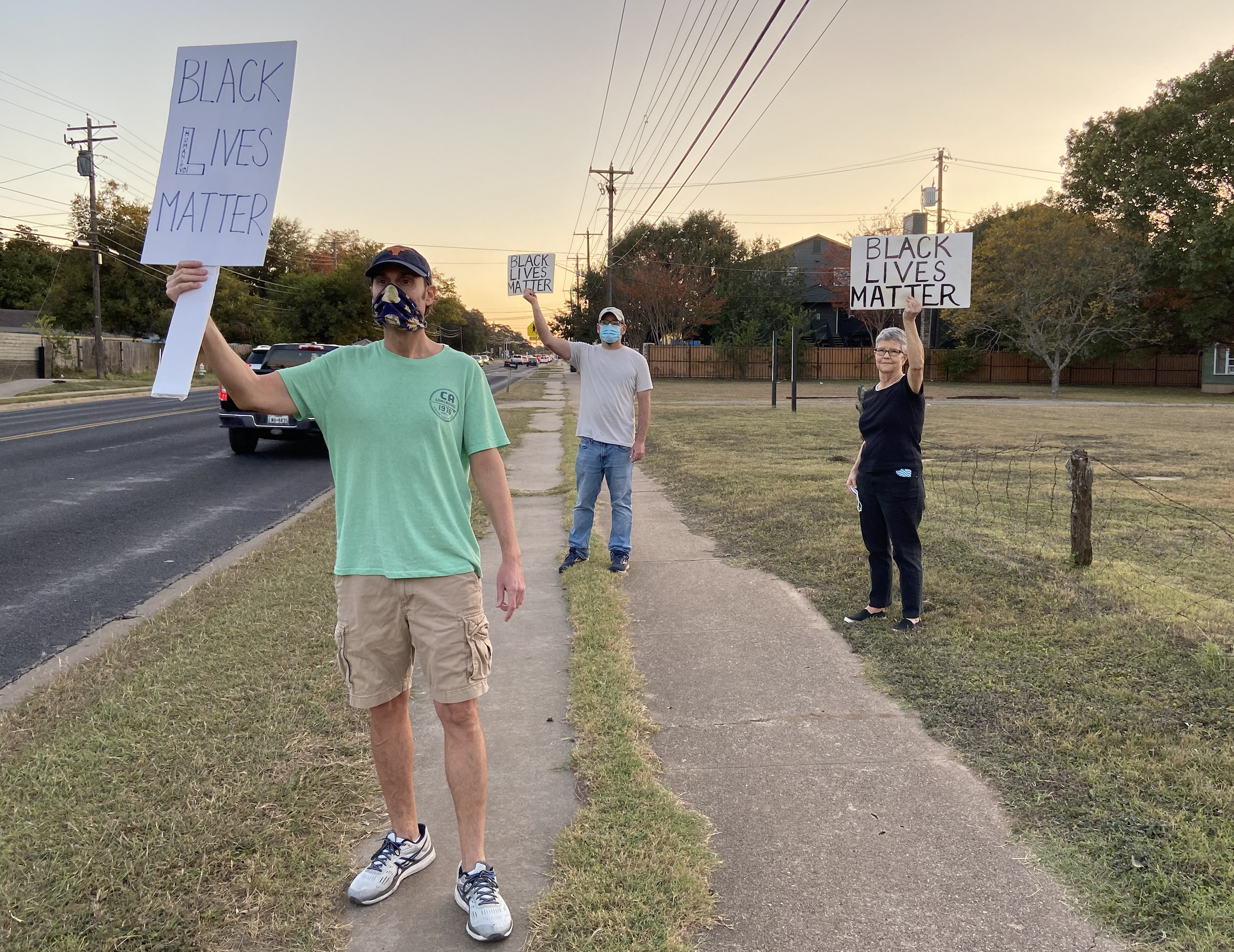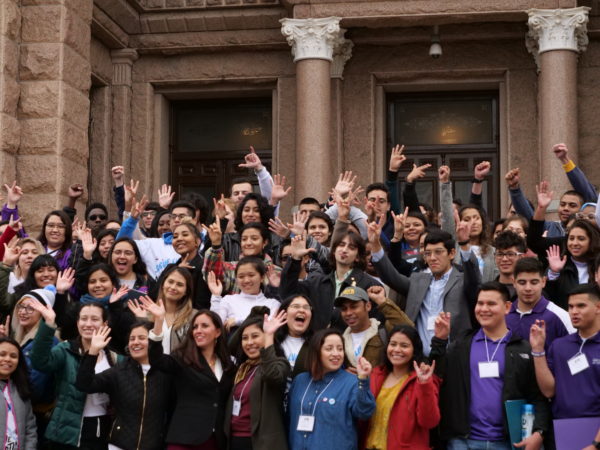(By ALEXA HAVERLAH)
At last count, it’s been 4,470 minutes and 268,200 seconds. That’s how long Christi Eubank, 67, has been standing on Menchaca Road in Austin, Texas holding a sign that simply reads, “Black Lives Matter.”
Every day since June 2, Eubank has stood for 30 minutes outside a development in South Austin, except for three times she missed due to rain and not feeling well. She stands alone or with fellow “standers,” as they call themselves.
The 10 or so people who make up this group don’t consider what they’re doing a protest, she said.
“We call it a stand,” Eubank said. “We feel like we are standing for something.”

(ACC Star Photo by Alexa Haverlah)
Since the death of George Floyd at the hands of a Minneapolis police officer on May 25, there have been more than 4,700 demonstrations, an average of 140 per day, across 550 places in the United States, according to a recent article in The New York Times.
In August, the Austin City Council unanimously voted to cut its police department budget by one-third. The decision comes after facing months of criticism over the killing of an unarmed Black and Latino man, the use of force against anti-police brutality protesters, and the investigation of a demonstrator’s fatal shooting by another citizen, according to a story in the Texas Tribune.
In response, the Texas Municipal Police Association erected two billboards in Austin warning drivers to enter at their own risk, according to a CNN story. Additionally, Gov. Greg Abbott announced plans in August to freeze property taxes in cities that vote to defund their police departments and that the Texas Department of Public Safety would “stand in the gap” to protect Austin until the State Legislature can take up the issue next session, according to the Tribune.
Eubank is familiar with both sides of the story. A 67-year-old white female retired nurse and practicing licensed acupuncturist for the past 25 years, Eubank grew up in a very conservative household in Amarillo, Texas where she recalls the N-word was used regularly at the dinner table.
“I grew up believing that, as a group, Black people were problematic, they were less than, they didn’t have the intellect that white people had,” Eubank recalled.
As a recovering alcoholic, Eubank has made friends with people of many different racial and socioeconomic backgrounds through Alcoholics Anonymous. Still, Black friends would tell her about DWB (Driving While Black) and she initially did not believe them, believing they were probably exaggerating.
“They would talk about the injustices they faced and I would think, ‘that can’t be true, they must have been breaking the law,’” Eubank said.
As for many others, the death of George Floyd was the catalyst for recognizing that what her friends had been saying all along was real. She realized she had bought her parents’ message of white racial superiority and, by default and design, Black racial inferiority.
“I don’t think I can live with myself if I don’t do this,” she said. “I have one particular [Black] friend, and sometimes when I stand, I feel like I stand just for him.”
As for reactions, Eubank has seen it all. Positive reactions from passing cars and people stopping by are most common.
Folks honk, form hearts with their hands, shake hands with Eubank, who has taken to bringing sanitary wipes because she won’t refuse a handshake, and bring her and her fellow supporters water and cookies.
“The most fun one is when somebody is tired or discouraged, then they look up and their eyes light up and they start waving,” Eubank said.
One woman asked to take a picture with Eubank to show her Black boyfriend. Another woman once delivered Eubank a handwritten thank you card.
On the other hand, Eubank said she mostly receives a lot of fingers or people who pull up looking for a fight and yell “all lives matter.” To this, Eubank agrees that all lives do matter, but we need to focus on Black lives right now.
It seems to her that recently people have become more aggressive when giving her the finger as if they are trying to make sure she sees it. “Those folks make me kind of nervous,” she admitted.
But Eubank hasn’t been able to find any rhyme or reason as to who will respond negatively or positively; she’s been surprised too many times. The only generalization she feels comfortable making is that if a woman with blue hair is driving by, they’re going to wave or honk.
Similarly, she refuses to generalize about the police.
“I bought the propaganda that all Black people were problematic, so I’m not going to make that mistake with the police,” she said. “So if I see a police car coming, I always make sure I can hold my sign with my left hand so that I can put my right hand over my heart.”
The decision to divest one-third of the Austin Police Department’s budget concerns Eubank; she would have preferred for local government to take a bite out of the budget and take things step-by-step. For those who believe not enough has been done in the past and are now calling for a large leap forward, Eubank said, “We may need to agree to disagree.”
By standing, Eubank hopes to inspire others.
“If I could wave a wand, everybody would feel motivated to take a stand for something they believe in,” she said. “Stand for something that matters.”




